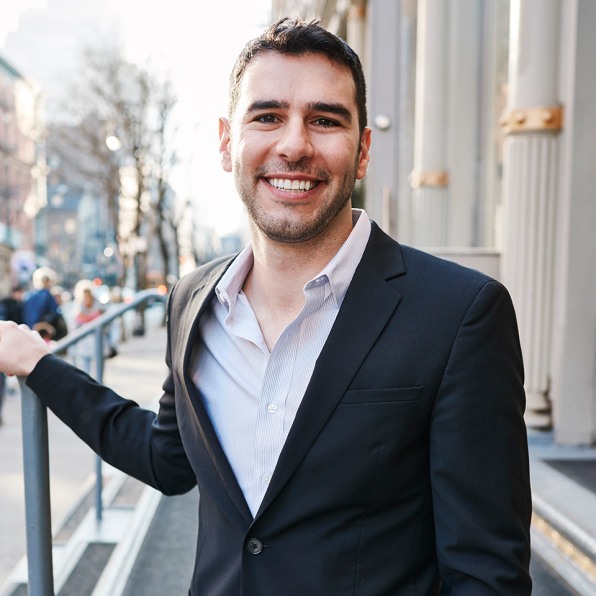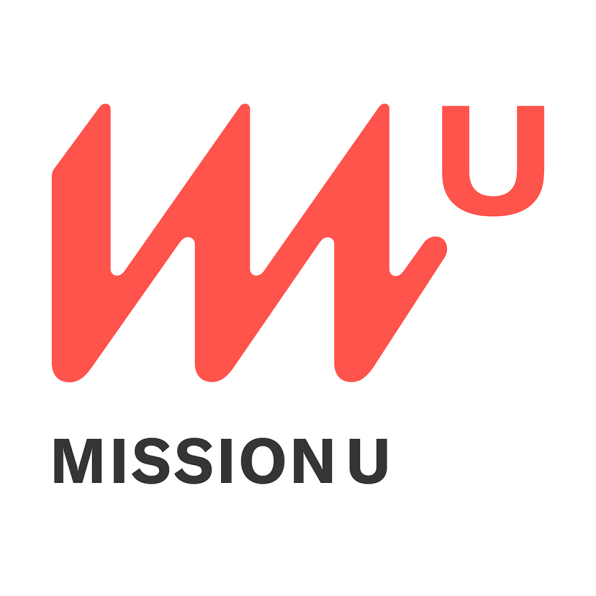Some college students are there for the keggers. Others want to live amid the library stacks in a state of academic bliss. But the majority of students? They are there because they want to find good jobs.
Too bad colleges are failing in that regard—and in the process creating a national debt crisis and exacerbating the skills gap between employers and job applicants. As of 2012, there were 34 million Americans with college debt and no degree, according to the Department of Labor.

The problem, as entrepreneur Adam Braun sees it, is that colleges have no incentive to focus on jobs. His new venture, MissionU, a cross between boot camp-style learning and traditional higher ed, has been designed to correct that dynamic. Instead of staring down six-figure tuition bills, MissionU grads earning $50,000 or more will pay 15% of their pre-tax income for three years. In short, the business model reinforces the mission.
“If our students aren’t successful, we’re not successful,” says Braun, who previously started education nonprofit Pencils of Promise, which builds schools in developing countries.
Success, in this case, looks like an entry-level job in data analytics and business intelligence at one of MissionU’s hiring partners—companies like Casper, Harry’s, Lyft, and Warby Parker. The path for a student to get there involves a rigorous application process and one year of tuition-free learning.

“We spend a lot of time training entry-level employees on the basics of how to work, whether it’s collaborating, being proactive—even a basic understanding of statistics,” says Warby Parker cofounder and co-CEO Neil Blumenthal, who expects to add a “couple hundred” people to his 1,100 employees this year. With his support, Warby Parker is weighing in on MissionU’s curriculum and will consider candidates from the first cohort of MissionU graduates next spring. In theory, a MissionU grad will be cheaper for companies like Warby Parker to recruit and train.
Career-focused models like that of MissionU, Blumenthal adds, are “not an indictment” of the liberal arts tradition. “It’s important that people learn how to think. But in general educational institutions are not moving fast enough with the pace of change.”
And students are paying the price. In 2016, more than 3,000 Americans per day defaulted on their student loans. All told, more than 8 million people are in default, to the tune of $137 billion.
“People are leaving their college experience absolutely crippled with insurmountable debt,” says Braun. At one point, his wife, Tehillah Braun, was among them, with over $100,000 in loans and no degree. Learning her story opened his eyes to the scale of the problem. “I think the vast majority of people entering college are making a bad decision. The return on that investment, for that young person, is increasingly diminishing or negative.”
Reform Or Revolution?
The situation is indeed dire, especially for first-generation college attendees like Tehillah. Charter school network KIPP, which serves many students that fit that profile, has woken up to the sobering realities that its students face when they arrive on college campuses. A survey published in February revealed that nearly three in five KIPP alumni attending college were worried about running out of food, while two out of three had been unable to find jobs or internships relevant to their goals.
But it’s hard to know whether higher education is in need of reform or revolution. Educational debt builds up in part because so many students are unprepared for college-level work, with one in four having to enroll in remedial classes during their freshman year (total cost: $1.5 billion). By some measures, the problem is even worse: According to the National Center for Public Policy and Higher Education, 60% of students are “not ready for postsecondary studies.” As college administrators are quick to point out, their institutions are being asked to solve a problem that they did not create. (MissionU will be able to avoid the problem entirely by skimming the best and brightest 19- to 25-year-olds from its applicant pool, for an initial cohort of 25 students.)
At the same time, researchers at Burning Glass Technologies have documented a phenomenon called “upcredentialing.” For example, just 19% of existing executive assistants have a bachelor’s degree—and yet 65% of job postings for the role now require one. The same is true of many middle-skill career pathways. In the Burning Glass account, contrary to Braun’s, getting a B.A. is more important than ever before. Indeed, income data consistently shows that college is more than worth the high price to attend.
“We have too few college graduates,” David Autor, an M.I.T. economist who has studied this issue, told the New York Times. Not attending college, in his view, is economically irrational.
The challenge for economists—and for students and employers—is separating college the signaling mechanism from college the learning experience. For decades, “college” has been a convenient shorthand for evaluating job applicant quality. But that may be changing, thanks to the glut of low-quality (even fraudulent) for-profit operators and the simultaneous celebration of elite dropouts like Mark Zuckerberg. All told, there is perhaps a widening opportunity for startups like MissionU.
“We are deep believers that traditional accreditation is not the only path to securing a job,” Braun says. “Ultimately, the most important credential is your first job.” (No “Lux et veritas” here.)
Building A B-Corp Brand
Braun has taken steps to distance MissionU from other for-profit institutions, structuring the organization as a B-Corp and raising $3 million in venture funding from top early-stage investors (First Round Capital led the October round). The single year that students attend is arranged into four distinct quarters: a foundational unit, focused on hard skills like project management and public speaking; a soft skills unit, which includes a period of personal exploration; a 12-week sprint focused on the student’s area of specialization; and a project phase involving a real-world client, which results in the completion of a public portfolio. Students will come together in person roughly once a month, but complete most of their learning online in video sessions led by industry practitioners. The total commitment: 25-40 hours per week, allowing room for a part-time job.
In the spring, MissionU will face its first major test: helping students get jobs that will jump-start their careers. Its reputation, and business model, depends on it. (Students who fail to reach the $50,000 threshold will be free of their repayment obligation after seven years.)
And if MissionU graduates can’t land a job at all? They will have no credits and no diploma. But, as Braun says: “You have a public résumé or real work, you have a set of industry certifications, you have a network of peers who are super ambitious career-starters, and you have us as a team internally deeply invested in your outcomes.”
For many disillusioned 19-year-olds, that might sound like a pretty solid deal.
Fast Company , Read Full Story
(108)